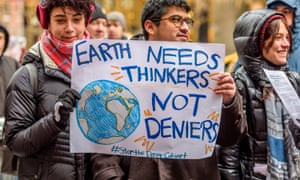Overwhelmed by climate change? Here's what you can do
Posted by Focus on Arts and Ecology on
- -
From campaigning to installing insulation and solar panels, some practical steps you can take to help avoid climate breakdown
The challenge of avoiding catastrophic climate breakdown requires “rapid, far-reaching and unprecedented changes in all aspects of society”, according to a new IPCC report.
Experts say that although the challenges are huge there is still time to create a thriving, sustainable future. The main focus is on the decisions facing governments around the world but the IPCC acknowledges the role individuals can play.
Here are some of the things people can do.
Collective action
Although individual choices and actions are important, experts say people need to unite if the scale of this challenge is to be met, making the political space for politicians and big businesses to make the necessary changes.
Bill McKibben, a leading climate campaigner and founder of 350.org, argues that the most important thing people can do is come together to form movements – or join existing groups – that can “push for changes big enough to matter”, from city-wide renewable energy programmes to large-scale divestment from fossil fuels.
Eat less meat – particularly beef
According to a report earlier this year, avoiding meat and dairy products is the single biggest way to reduce your environmental impact on the planet.
Insulate homes
Relatively simple measures such as insulating lofts and draft-proofing doors and windows on a large scale would see a big drop in energy consumption. However, the UK government substantially cut the amount that energy companies are forced to spend on helping households with energy efficiency measures. All that money is now focused on helping fuel-poor households, with no incentive for better-off households to improve their energy efficiency.
We have 12 years to limit climate change catastrophe, warns UN.
Solar panels
Switch to renewable energy wherever possible. In the UK, consider installing solar panels before April, when government incentives will end and the costs will increase for most people.
Transport
Walk or cycle where possible and if not – and it is available and affordable – use public transport. If you need to go by car, consider an electric one.
Reduce, recycle, reuse
Buy fewer things and consume less. Recycle wherever possible and – even better – reuse things. Demand a low carbon option in everything you consume, from clothes to food to energy.
Vote
Many experts – including the IPCC – say there is still a chance to create a sustainable, cleaner and more equal global system. Individuals can hold politicians to account by supporting political parties that put the environment at the heart of their economic and industrial policies.
However the IPCC is clear that the real challenge from its report is to politicians, political systems and corporations rather than individuals.
Jim Skea, a co-chair of the IPCC working group on mitigation said the report had presented governments “with pretty hard choices”.
“We have pointed out the enormous benefits of keeping to 1.5C, and also the unprecedented shift in energy systems and transport that would be needed to achieve that,” Skea said. “We show it can be done within laws of physics and chemistry. Then the final tickbox is political will. We cannot answer that. Only our audience can – and that is the governments that receive it.”
Since you’re here…
… we have a small favour to ask. More people are reading the Guardian than ever, but advertising revenues across the media are falling fast. And unlike many news organisations, we haven’t put up a paywall – we want to keep our journalism as open as we can. So you can see why we need to ask for your help.
The Guardian is editorially independent. So we set our own agenda. Our journalism is free from commercial bias. It isn’t influenced by billionaire owners, politicians or shareholders. No one edits our editor. No one steers our opinion. This means we can give a voice to the voiceless. It lets us challenge the powerful - and hold them to account. At a time when our honest, factual reporting is critical, it’s one of many things that set us apart.
Our approach is different from others in the media. While others offer only fixed subscriptions, we give our readers the option to support us voluntarily. This is not meant as a short term solution; this approach is for now and for the future. By supporting The Guardian, you’re investing in the long term sustainability of our independent, investigative journalism.
If everyone who reads our reporting, who likes it, helps to support it, our future would be much more secure. For as little as £1, you can support the Guardian – and it only takes a minute. Thank you.
Posted in
Climate and Climate Action,
Ecology














Đăng nhận xét